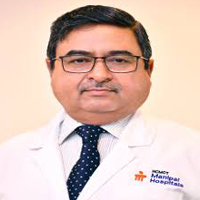Skull Base Surgery IN INDIA
Skull base surgery is a complex medical procedure performed to address various conditions at the base of the skull. From tumors to vascular abnormalities, this surgery demands exceptional expertise, advanced technology, and comprehensive care. India, with its renowned hospitals and highly skilled specialists, has become a preferred destination for patients worldwide seeking skull base surgery.
In this article, we’ll explore everything about skull base surgery in India, from why it is performed to its cost, recovery process, and more. Whether you are a patient considering treatment or a caregiver seeking information, this guide provides clear, concise, and accurate insights to help you make an informed decision.
Introduction to Skull Base Surgery
Skull base surgery is a highly specialized field in neurosurgery that focuses on diagnosing and treating conditions affecting the base of the skull, a critical area that supports the brain and houses essential blood vessels and nerves. This complex surgery requires a multidisciplinary approach, often involving neurosurgeons, ENT specialists, and oncologists working together. India has emerged as a global hub for skull base surgery due to its combination of advanced medical infrastructure, skilled specialists, and affordable treatment options.
What is Skull Base Surgery?
Skull base surgery involves intricate procedures to access and treat disorders at the bottom of the skull. The skull base is divided into anterior, middle, and posterior regions, each containing delicate structures. Conditions in this area are challenging to treat due to the limited surgical access and proximity to critical anatomical components like the brainstem, optic nerves, and carotid arteries.
The surgical approach may involve open techniques requiring larger incisions or minimally invasive techniques using an endoscope. Advanced imaging and navigation tools play a significant role in planning and executing these surgeries.
Why is Skull Base Surgery Performed?
Common Conditions Treated
Skull base surgery is used to treat a variety of conditions, including:
- Benign Tumors: Such as meningiomas, pituitary adenomas, and acoustic neuromas.
- Malignant Tumors: Including chordomas, sarcomas, and sinonasal carcinomas.
- Vascular Abnormalities: Like aneurysms and arteriovenous malformations.
- Congenital Defects: Such as encephaloceles or skull deformities.
- Trauma-Related Issues: Including fractures and cerebrospinal fluid (CSF) leaks.
Goals of Skull Base Surgery
The primary objectives of skull base surgery are to:
- Remove abnormal growths or lesions.
- Alleviate symptoms caused by pressure on critical structures.
- Preserve or restore vital functions, such as vision, hearing, and facial movement.
- Prevent recurrence of the condition by achieving complete surgical resection.
Understanding Skull Base Disorders
Types of Skull Base Conditions
- Tumors: Tumors in the skull base can be either benign or malignant. Examples include pituitary adenomas that affect hormonal balance and acoustic neuromas that can cause hearing loss and balance problems.
- Vascular Abnormalities: Conditions such as aneurysms or arteriovenous malformations can lead to life-threatening complications if untreated.
- Congenital Defects: Birth defects in the skull base can lead to structural abnormalities, affecting function and appearance.
Symptoms of Skull Base Disorders
Common symptoms include:
- Persistent headaches, often severe and localized.
- Vision problems, including double vision or partial blindness.
- Hearing loss, ringing in the ears, or balance issues.
- Facial numbness, weakness, or difficulty in swallowing.
- Nasal congestion or recurrent sinus infections.
Early diagnosis is critical to prevent complications and ensure effective treatment.
Benefits and Risks of Skull Base Surgery
Advantages of Advanced Techniques
- Improved precision with minimally invasive methods.
- Faster recovery and reduced hospital stays.
- Enhanced preservation of critical functions.
Potential Risks and Complications
- Bleeding or infection.
- Nerve damage leading to functional loss.
- Recurrence of tumors or lesions in rare cases.
Cost of Skull Base Surgery in India
The cost of skull base surgery in India varies depending on the type of procedure, hospital, and other associated factors. Below is a table that provides an approximate cost range:
| Type of Surgery | Cost in India (INR) | Cost in USD |
| Endoscopic Skull Base Surgery | ₹2,50,000 – ₹5,00,000 | $3,000 – $6,000 |
| Open Skull Base Surgery | ₹3,50,000 – ₹6,50,000 | $4,200 – $7,800 |
| Pituitary Tumor Surgery | ₹2,00,000 – ₹4,50,000 | $2,400 – $5,400 |
| Skull Base Tumor Removal (Complex Cases) | ₹5,00,000 – ₹10,00,000 | $6,000 – $12,000 |
| Postoperative Care and Rehabilitation | ₹50,000 – ₹1,00,000 | $600 – $1,200 |
Factors Affecting the Cost of Skull Base Surgery in India
-
- Type of Surgery: Minimally invasive surgeries (like endoscopic approaches) may cost less than complex open surgeries. Tumor size, location, and complexity can also influence the cost.
- Hospital Infrastructure: Costs are higher in internationally accredited hospitals with advanced facilities. Tier-1 city hospitals tend to be more expensive compared to Tier-2 or Tier-3 cities.
-
- Surgeon’s Expertise: Surgeons with extensive experience and international training may charge higher fees.
- Preoperative Diagnostics: Advanced imaging studies like MRI, CT, and angiography add to the overall cost.
- Technology Used: Cutting-edge tools, such as neuronavigation systems and high-definition endoscopes, can increase the cost of the procedure.
-
- Postoperative Care: ICU stay, medications, physiotherapy, and long-term follow-up care may add to the total expense.
- Patient-Specific Factors: Pre-existing medical conditions requiring additional care can increase costs. Extended hospital stays due to complications can also affect the overall expenditure.
- Medical Tourism Services: International patients often require travel, accommodation, and visa assistance, which can add to the total cost.
Why Choose Al Afiya for Skull Base Surgery in India?
- Network of Top Hospitals
- Partnered with leading hospitals equipped with advanced technologies like neuronavigation and high-definition endoscopy.
- Accredited by NABH and JCI, ensuring global healthcare standards.
- Expert Surgeons: Access to highly skilled neurosurgeons and ENT specialists with international training and expertise in minimally invasive and open surgeries.
- Personalized Assistance: End-to-end support from initial consultation to postoperative care, tailored to individual patient needs.
- Affordable Packages: World-class treatment at competitive costs with transparent pricing covering surgery, hospital stay, and follow-ups.
- Medical Tourism Services: Comprehensive logistics support, including visa assistance, airport transfers, accommodation, and interpreters for international patients.
- Patient-Centric Approach: Emphasis on clear communication and ensuring comfort for patients and their families throughout the treatment journey.
- Postoperative Support: Continuous care with physiotherapy, follow-ups, and recovery guidance for optimal results.
- Trusted and Credible: Established reputation backed by positive patient testimonials and consistent service excellence.
- Multilingual Support: Assistance in multiple languages to facilitate seamless communication with international patients.
10. 24/7 Assistance: Round-the-clock support for patient queries, emergencies, and updates.
Pre operative Preparation for Skull Base Surgery
Preparing for skull base surgery is crucial for a successful outcome.
Diagnostic Tests and Imaging
Patients typically undergo comprehensive diagnostic evaluations, including:
- MRI Scans: To provide detailed images of soft tissues and tumors.
- CT Scans: To assess bone structures and detect abnormalities.
- Angiography: To visualize blood vessels in and around the skull base.
These tests help surgeons understand the condition’s complexity and plan the best surgical approach.
Counseling and Patient Education
Patients and their families are informed about the procedure, potential risks, and expected outcomes. Psychological counseling is often provided to alleviate anxiety and build trust.
Preparing for Hospital Admission
Patients are instructed on preoperative requirements, such as fasting, stopping certain medications, and ensuring all necessary medical reports are ready.
The Surgical Procedure
Types of Skull Base Surgeries
- Open Skull Base Surgery:
This traditional approach involves making larger incisions to access the affected area. It is typically used for large or complex tumors.
- Endoscopic Skull Base Surgery:
A minimally invasive technique that uses an endoscope inserted through the nose or small incisions. This approach reduces recovery time and minimizes scarring.
Technology and Tools Used
Surgeons use advanced tools like:
- Neuronavigation Systems: To map and guide the surgical path.
- Endoscopes with High-Definition Cameras: For enhanced visualization.
Intraoperative Monitoring: To ensure critical functions like vision and hearing are preserved.
Post operative Care and Recovery
- Immediate Post-Surgical Care: After surgery, patients are monitored in the ICU for 24–48 hours to ensure stability. Pain management, infection control, and neurological assessments are prioritized.
- Long-Term Recovery: The recovery period varies depending on the procedure. Patients may experience temporary swelling, fatigue, or mild pain, which subsides over time.
Rehabilitation and Follow-Up: Rehabilitation may involve physical therapy, speech therapy, or vision therapy to regain lost functions. Regular follow-up visits ensure the condition is managed effectively, and any recurrence is detected early.
Top Skull Base Surgery Doctors in India
The right doctor to consult for a Skull Base Surgery case.
Dr. Sandeep Vaishya
Year of experience: 36
HOD and Senior Consultant at Fortis Memorial Research Institute, Gurgaon
Dr. Arun Saroha
Year of experience: 29
Senior Consultant at Max Hospital, Gurgaon
Dr. Rohan Sinha
Year of experience: 16 years of experience
Director & Senior Consultant at Jaypee Hospital
Dr. Manvir Bhatia
Year of experience: 23 Years of Experience
Dr. Praveen Gupta
Year of experience: 15 Years of Experience
Dr. Rana Patir
Year of experience: 32
Consultant at Fortis Memorial Research Institute, Gurgaon
Dr. Sudheer Kumar Tyagi
Year of experience: 38
Senior Consultant at Indraprastha Apollo Hospital, Delhi
Dr. Sumit Singh
Year of experience: 25
Chief and Senior Consultant at Artemis Hospital
Dr. Veena Kalra
Year of experience: 37 Years of Experience
Dr. Vikas Gupta
Year of experience: 31 years of experience
Looking For The Best Doctor & Hospital?
Fill up the form and get assured assitance within 24 hrs!
FAQs
- What is skull base surgery?
Skull base surgery is a specialized procedure to treat conditions at the base of the skull, including tumors, vascular issues, and deformities. It can be performed using minimally invasive techniques or open surgery, depending on the condition.
- Which are the best hospitals for skull base surgery in India?
Some of the leading hospitals in India for skull base surgery include:
- AIIMS, New Delhi
- Apollo Hospitals, Chennai
- Fortis Escorts Heart Institute, New Delhi
- Medanta – The Medicity, Gurugram
- Narayana Health, Bengaluru
- Manipal Hospitals, Bengaluru
- Who are the best doctors for skull base surgery in India?
India is home to highly skilled neurosurgeons and ENT specialists, including:
- Dr. Rana Patir (Fortis Hospitals, Gurugram)
- Dr. Sandeep Vaishya (Medanta – The Medicity, Gurugram)
- Dr. V. P. Singh (Max Super Specialty Hospital, Delhi)
- Dr. Alok Gupta (Artemis Hospitals, Gurugram)
- Dr. K Sridhar (Apollo Hospitals, Chennai)
- What conditions does skull base surgery treat?
Skull base surgery is used to treat:
- Benign and malignant tumors
- Pituitary adenomas
- Skull base fractures
- Trigeminal neuralgia
- Vascular abnormalities like aneurysms
- Congenital deformities
- What is the success rate of skull base surgery in India?
The success rate of skull base surgery in India is high, averaging 85-95%, depending on the complexity of the condition and the expertise of the surgeon.
- How do I prepare for skull base surgery?
Preparation involves:
- Comprehensive pre-surgical tests (MRI, CT scans, blood work)
- Stopping certain medications (as advised by your doctor)
- Meeting with an anesthesiologist and attending counseling sessions
- What is the recovery time after skull base surgery?
Recovery time varies, but most patients recover within 4-6 weeks for minimally invasive procedures and 8-12 weeks for open surgeries. Full recovery may take longer depending on the complexity of the surgery.
- What are the risks associated with skull base surgery?
Risks include infection, bleeding, cerebrospinal fluid leakage, nerve damage, and anesthesia complications. Choosing a skilled surgeon significantly minimizes these risks.
- Why is India a preferred destination for skull base surgery?
India offers:
- World-class hospitals with cutting-edge technology
- Highly qualified surgeons with international training
- Affordable treatment costs (40-70% lower than Western countries)
- Excellent postoperative care and medical tourism services
- How much does skull base surgery cost in India?
The cost of skull base surgery in India typically ranges from ₹4,00,000 to ₹10,00,000 ($5,000 – $12,000), depending on the hospital, doctor’s expertise, and complexity of the procedure.
- How can I choose the right doctor and hospital for skull base surgery?
Consider the following:
- The hospital’s infrastructure and accreditations (e.g., NABH, JCI)
- The surgeon’s expertise and experience in skull base surgery
- Patient reviews and success rates
- Availability of advanced equipment like neuronavigation and robotic surgery
Get FREE Evaluation
Treatment plan and quote within within 24 hrs!
Let us help you
Get your personalized Estimate Now
Top Doctors & Surgeons in India
Best Hospitals in India
Best Treatments in India
Indian Medical Visa From
Copyright © 2025 Al Afiya Medi Tour | All Rights Reserved.






































